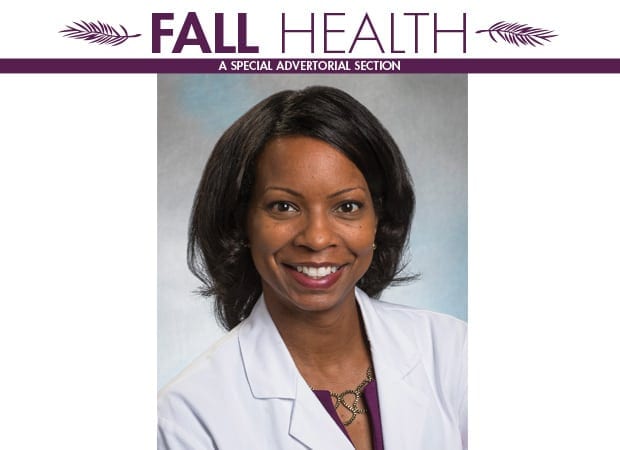
A Special Advertorial Section
Brigham and Women’s Hospital (BWH) obstetrician Audra Robertson thinks that birth outcomes in our community could be much better. That’s why she spends much of her time advising women on optimizing their health before, during and after pregnancy to prevent low birth weight and other problems.
Here are some tips from Dr. Robertson to help women improve their chances of having a healthy baby.
Eat right
Eating right is particularly important for pregnant women. Your baby needs healthy food, not sugar and fat. Eat plenty of colorful fruits and vegetables, whole grains, calcium-rich foods and foods low in saturated fat.
Get your vitamins
Get plenty of folic acid and calcium. You can get these and other necessary vitamins and minerals from food and a standard multivitamin. Spinach, collard greens, oranges, broccoli and kidney beans are rich in folic acid. Milk, yogurt and spinach are packed with calcium. A daily prenatal multivitamin can help ensure you get the right amount. Ask your doctor about taking a daily prenatal vitamin.
Stay hydrated
A pregnant woman’s body needs more water. Aim for eight or more cups (64 ounces or more) per day.
Proper prenatal care
Women should get regular prenatal care from a health-care professional. Mothers who do not get regular prenatal care are much more likely to have a child with low birth weight. If available, consider group prenatal care.
Don’t eat certain foods
There are certain foods that women should avoid eating while pregnant. Do not eat: raw or rare meats, liver, sushi, raw eggs (also in mayonnaise), soft cheeses (feta, brie) and unpasteurized milk. Raw and unpasteurized animal products can cause food poisoning. Some fish, even when cooked, can be high in mercury.
Don’t drink alcohol
Women should not drink alcohol before or during their pregnancy or while breastfeeding.
Drinking alcohol increases the risk of having a baby with fetal alcohol spectrum disorder (FASD). FASD can cause abnormal facial features, severe learning disabilities and behavioral issues.
Alcohol can impact a baby’s health in the earliest stages of pregnancy, before a woman may be aware she is pregnant. This is why women who may become pregnant also should not drink alcohol.
Don’t smoke
Smoking is bad for you. Smoking is also bad for your unborn child. It increases the risk of SIDS (sudden infant death syndrome), premature births, miscarriages and several other unhealthy outcomes.
Get moving
Daily exercise is good for most pregnant women. Check with your doctor to find out how much physical activity would be right for you.
Get a flu shot
The flu can make a pregnant woman very sick. Ask your doctor about getting a flu shot.
Get plenty of sleep
Ample sleep (7-9 hours) is good for you and your baby. Try to sleep on your left side to improve blood flow to you and your child.
Reduce your stress
Dr. Robertson says that reducing stress is crucial for improving birth outcomes. Pregnant women should avoid, as much as they can, stressful situations. Recruit your loved ones to help you with this.
Choosing the right time to become pregnant
“If women are choosing to become pregnant at a time when they know that they’re at their healthiest, that increases their chances of having a healthy pregnancy and a healthy birth,” explains Dr. Robertson.
This not only means that women should make sure that they are healthy before they become pregnant, but they also should consider their age before getting pregnant.
Mothers who have children early in life (less than 16) or late in life (older than 40) are naturally at greater risk for having a preterm birth. Also, women who become pregnant again too soon (less than 18 months in between births) are even more likely to have a preterm child.
Learn more
To learn more about having a healthy pregnancy, visit www.womenshealth.gov/pregnancy.
Birth Equity Initiative
Dr. Robertson leads the Birth Equity Initiative (BEI) at BWH. The program addresses inequities in infant mortality and birth weight in the Boston area, particularly among African American women. The BEI brings together clinical care, community outreach and research to educate and empower women, their families and their communities to do the things that help improve birth outcomes.
The Centering Pregnancy Program, a cornerstone of the BEI, caters primarily to teens. It helps young women achieve good health before, during, and between pregnancies.
To learn more about the Brigham and Women’s Hospital Birth Equity Initiative and the Centering Pregnancy Program, please visit
www.brighamandwomens.org/birthequity
or call (617) 582-0187.






